
Agriculture
December 19, 2023
Ecodry Urine-Diverting Dry Toilet
Read SolutionImplemented by
Wostman
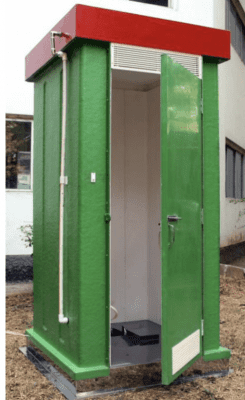 discontinued
discontinued
Updated on August 13, 2024
·Created on July 31, 2019
The Dry-San Hygienic Rural Toilet is a dry sanitation system consisting of squat type toilet pan with three ports for solids, urine and washing water, designed at IIT Bombay.
The Dry-San Hygienic Rural Toilet is a dry sanitation system consisting of squat type toilet pan with three ports for solids, urine and washing water, designed by IIT Bombay. This technology was designed for communities in India with less access to water for flushing, as the separation of liquids from the solid waste allows it to be aerobically decomposed over time and ultimately land applied as manure.
Target SDGs
SDG 6: Clean Water and Sanitation
Market Suggested Retail Price
$1,000.00
Target Users (Target Impact Group)
Household, Community, Small and Medium-sized Enterprises, Public Sector Agencies, NGOs
Distributors / Implementing Organizations
The Dry-San Toilet system can be acquired directly from manufacturer or built in place, the design manual and guidelines are ready for distribution to NGOs and/or self-help groups.
Countries
India
Manufacturing/Building Method
The Dry-San Hygienic Rural Toilet can be manufactured by CTECH, a Sine-IITB Company in India. The Design Manual & Guidelines are also ready for distribution to NGOs and other groups who would like to build and install the units in their respective areas of operation.
Intellectural Property Type
Patent
User Provision Model
These toilets are available directly from the manufacturer. The design manual is also available to NGOs and other groups for DIY construction.
Distributions to Date Status
There are about 20 prototype installations in place.Interview with representative
Toilet type
Pit latrine
Evacuation method
Dry
Storage conditions
Pits for solids, urine and washing water
Capacity (L)
Unknown
Time until emptying
~10 years
Design Specifications
The toilet has three ports to separate urine, washing water, and solid waste. The squat style toilet pan is made from stainless steel, and has heel supports to assist in getting up after usage. Pit sizes depend upon construction specifics, but estimates for a family of five indicate 10 years prior to waste removal. Waste can be land applied as manure after decomposition (website states approximately 20/24 months). The digester tank is 2m x 1m x 1.2m.Interview with representative
Technical Support
All the technical support for installation and maintenance is provided during installation.Interview with representative
Replacement Components
The stainless steel squat pan will likely last more than 20 years prior before it needs to be replaced.
Lifecycle
The lifecycle depends upon the number of users and pit size. The manufacturer estimates that due to the volume reduction the digester tank of 2m x 1m x 1.2m can be used by a family of 6 for more than 10 years without opening of tank for removal of the digested matter.Interview with representative
Manufacturer Specified Performance Parameters
Designer specified targets include being waterless, aerobic decomposition of solids, a manure end product, being easy to manufacture, and being easy to maintain.
Vetted Performance Status
No third party testing has been found, though the manufacturer has prototype results and sponsorship from the Ministry of Drinking Water and Sanitation in India.
Safety
There should be no seepage of rainwater into the solid waste pit to ensure decomposition. The squat pan should be cleaned regularly. Household waste should not enter the pit. Chemical additives should not be used.
Complementary Technical Systems
None listed
Academic Research and References
Munshi K., 2013, Dry-San Hygienic Rural Toilet, IIT Bombay.
IIT Bombay, Dry-San Hygienic Rural Toilet (dry sanitation system), CTech.
FutureEnTech, 2015, IIT-Bombay Prof Kishore designed a Waterless Toilet System ‘Dry-San Hygienic Rural Toilet’ to help Rural Sanitation . Available: https://futureentech.com/iit-bombay-kishore-waterless-toilet-rural-india/
Compliance with regulations
There are no regulations with regard to Dry Sanitation in India.Interview with representative
Evaluation methods
Field testing was done when the Dry-San Toilet was used by about 30 persons daily for about a year. It was regularly monitored for effective digestion of fecal matter, reduction of volume, separation of urine and feedback from users.Interview with representative
Other Information
Patents: 3711/MUM/2013 and 645/MUM/2014

Agriculture
December 19, 2023
Implemented by
Wostman
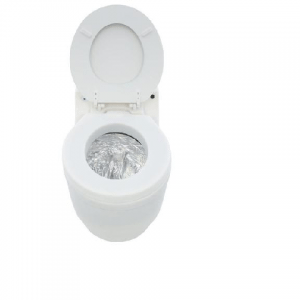
Agriculture
December 20, 2023
Implemented by
Dry Flush
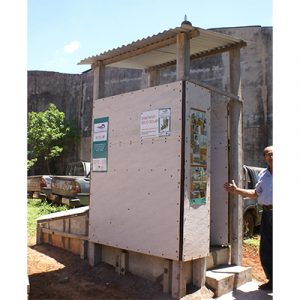
Agriculture
January 17, 2024
Implemented by
Centro de Desarrollo del Habitat y el Medio Ambiente (CEDES/Habitat)
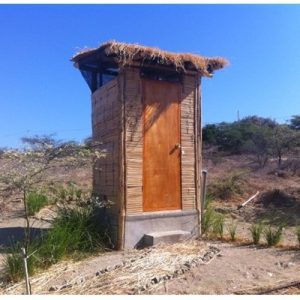
Agriculture
August 16, 2024
Implemented by
EcoSwell

Agriculture
January 19, 2024
Implemented by
Clean Team Ghana
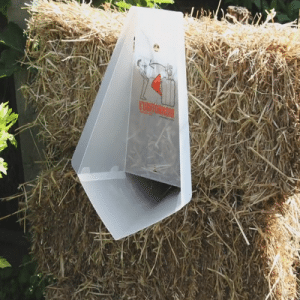
Agriculture
December 19, 2023
Implemented by
Faltazi
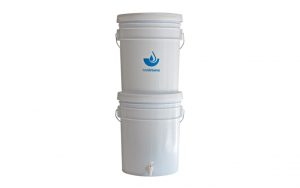
Agriculture
January 30, 2024
Implemented by
IslaUrbana
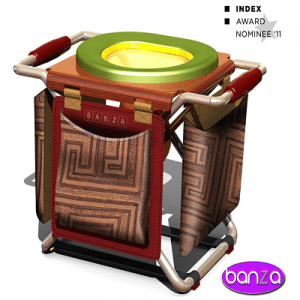
Agriculture
August 8, 2024
Implemented by
Patrick Kiruki, Banza Sanitation
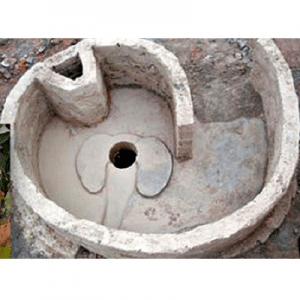
Agriculture
August 13, 2024
Implemented by
The Africa Trust
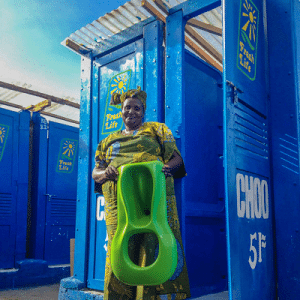
Agriculture
August 17, 2024
Implemented by
Sanergy
Have thoughts on how we can improve?
Give Us Feedback